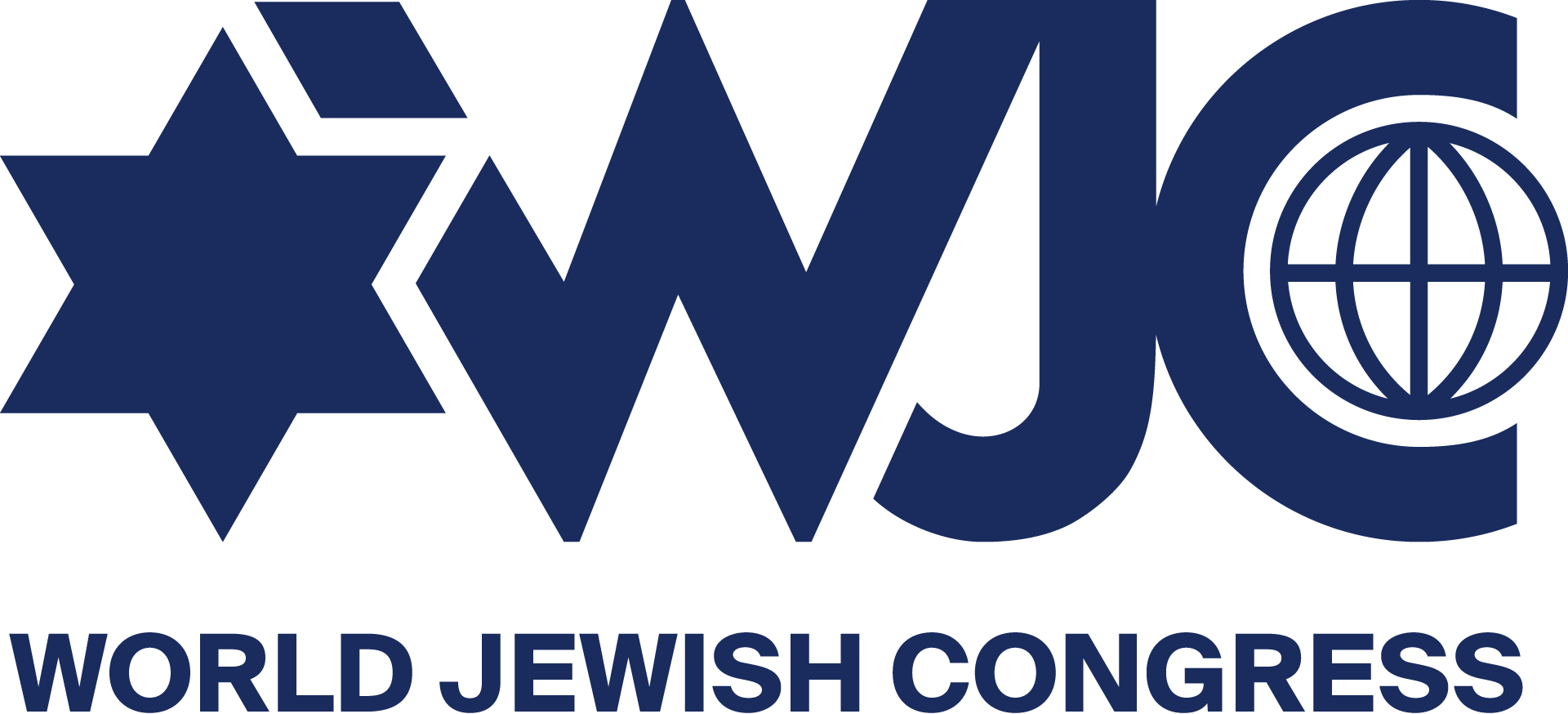Jewish Community Directors From 48 Nations
Discuss Top Challenges of Today’s World
War in Ukraine, Antisemitism, Inflation Among Concerns at World Jewish Congress Forum
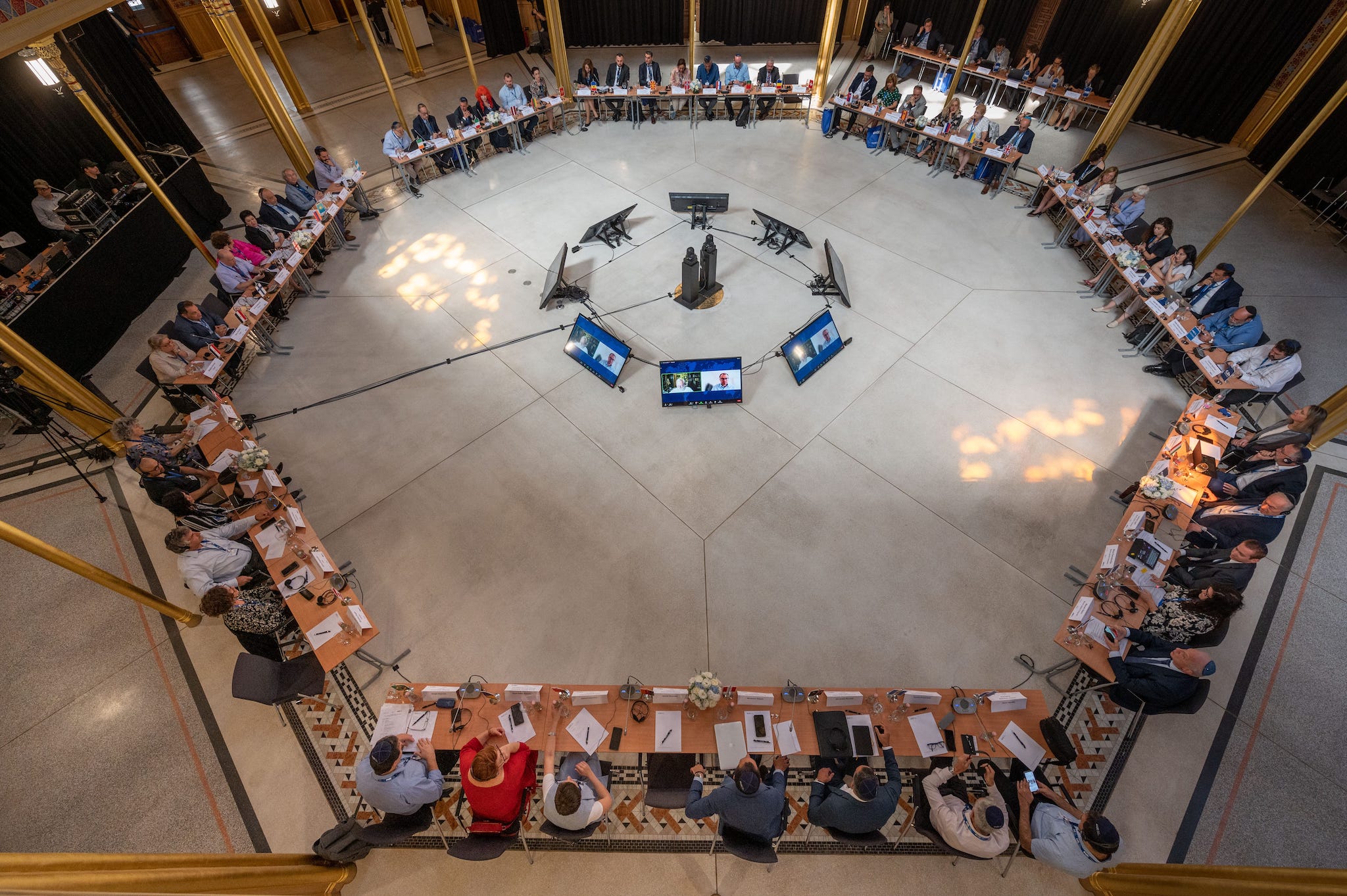
(c) Shahar Azran / WJC
Jewish community directors from around the globe met in Budapest this week to contend with ongoing challenges such as supporting humanitarian relief in Ukraine, combating antisemitism and dealing with the impact of inflation, which has stymied efforts to bounce back from the ongoing pandemic.
Representatives of community organizations from 48 nations, including, for the first time, Egypt, attended the seventh annual meeting of the World Jewish Congress’ National Community Directors Forum (NCDF), which convened the Jewish world’s operations professionals — the managers on the ground who make sure their communities are safe and secure, with sufficient access to kosher food, rabbis and other essential services.
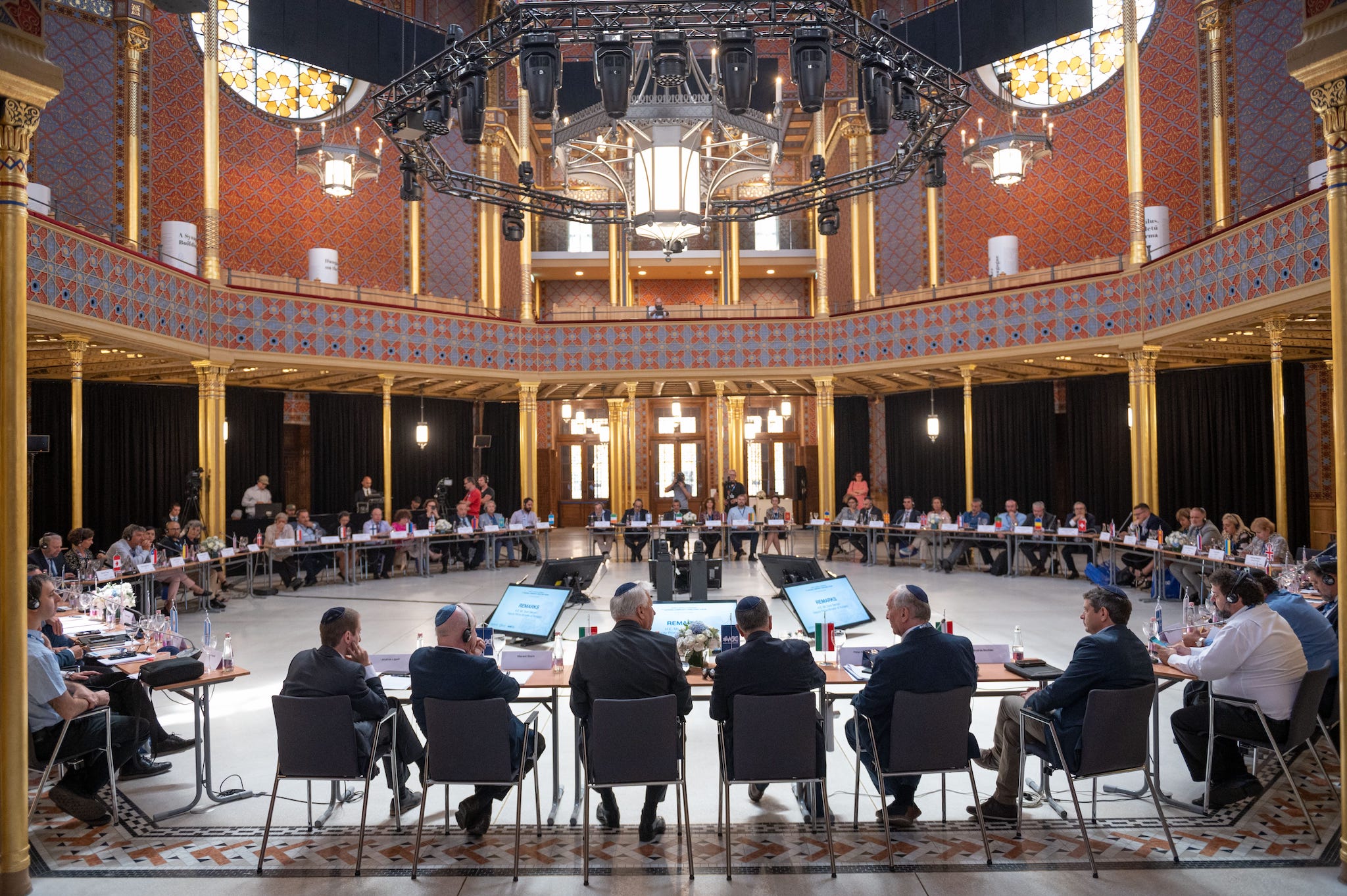
(c) Shahar Azran / WJC
“These are the people with their fingers on the pulse of Jewish communities across the globe,” said Maram Stern, WJC executive vice president. “
They have told us that they are grappling with rising antisemitism. These leaders are continuing to find new and innovative ways to fight back despite the lingering effects of the COVID pandemic and other challenges. We are inspired and humbled by their resilience and determination.”
Launched in 2013 in Prague, the NCDF is a forum that brings together senior community professionals to share best practices and create networks of relationships.
This year’s gathering — the first time that the group has met in-person since the onset of the COVID pandemic — was hosted in partnership with Hungary’s Federation of Jewish Communities (MAZSIHISZ).
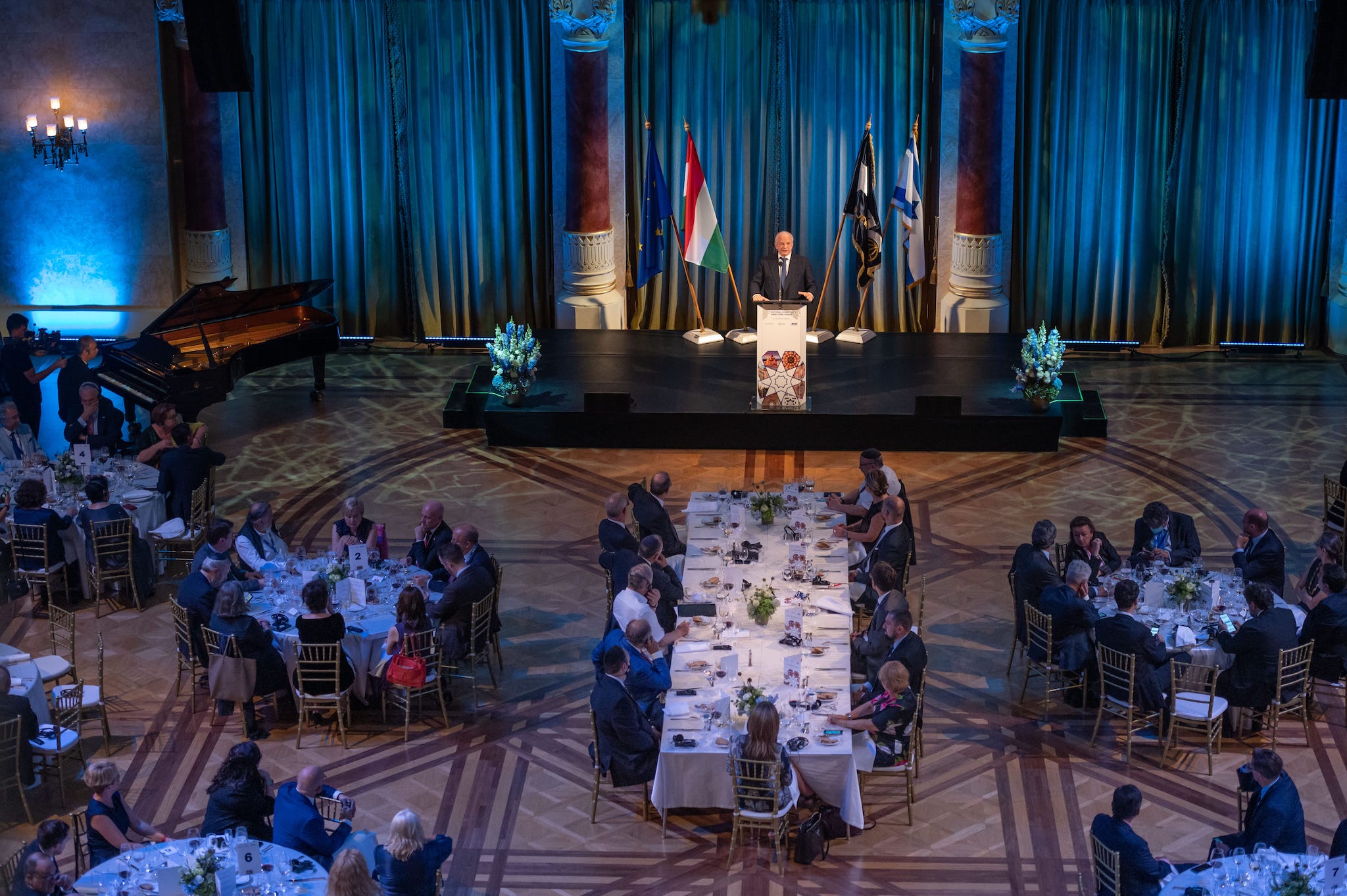
(c) Shahar Azran / WJC
Prior to the opening of the official meeting, the community welcomed participants for Shabbat celebrations, and on Sunday paid a special visit to the Dohány Street Synagogue, which was damaged in World War II and renovated with the help of Amb. Ronald S. Lauder, WJC president. The program also included a commemoration event at the city’s Holocaust memorial along the banks of the Danube River.
Before immigrating to the United States from Hungary, Lauder’s grandparents were married at Budapest’s Rumbach Street Synagogue. The building, recently renovated following a $11.2 million contribution from the Hungarian government, is now home to a WJC office and served as the site of the NCDF working meetings.
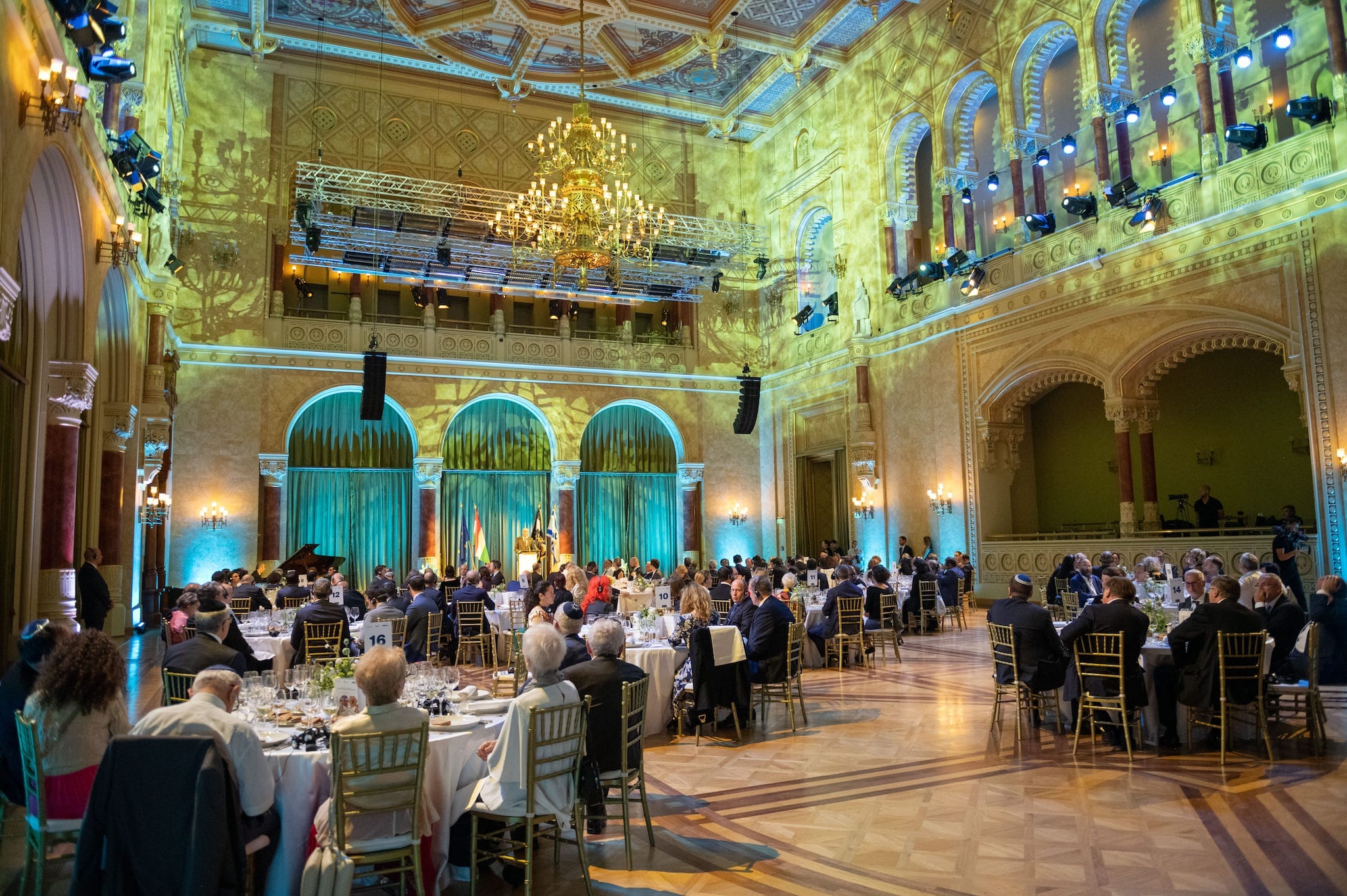
(c) Shahar Azran / WJC
Zsolt Semjén, deputy prime minister of the Republic of Hungary, and András Heisler, MAZSIHISZ president and WJC vice president, also spoke at the meeting.
“We have already helped thousands of refugees, providing food and healthcare and assisting in their integration into the community here” said Heisler, who spoke to the group at a gala dinner on Monday evening where he explained how the Hungarian Jewish community has worked to assist Jews in Ukraine affected by the conflict. “I am glad to see the humanitarian assistance that the Hungarian government, volunteers and churches are providing to refugees from Ukraine,” he added.
Semjén described the renaissance of Hungarian Jewry, saying, “We are proud of the history of Jewish influence on Hungarian culture. There are more than 100,000 Hungarians with connections to the Jewish community. Many of them are rediscovering their identity, and that is why the community is flourishing.”
In addition, the government of Hungary is supporting the renovation of a mikveh, or ritual bath, in the city of Miskolc, in the northeastern part of the country, as a symbol of its commitment to the Jewish community, the deputy prime minister said.
